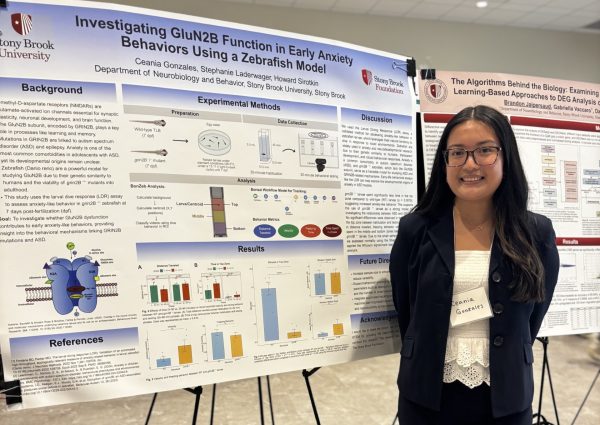Give Me Measles or Give Me Death
Recent arguments about vaccinations have taken over social media and has ultimately caused a sudden outbreak of a serious disease.
Photo by Rachel Edwards
Arguments about whether vaccines are safe have been seen all over the internet, especially on social media. Although many concerns have been raised about the possibility of vaccines causing Autism and other serious illnesses, many scientists and doctors have debunked these theories. Unfortunately, many people do not trust the scientific research and have decided to not vaccinate themselves or their children, resulting in the current outbreak of measles.
There has been a recent surge of arguments on social media about the differing views concerning vaccinations.
One group of people, most commonly referred to as “Anti-Vaxxers” has expressed their deep opposition to vaccines, with the fear of the side-effects from vaccines possibly affecting them or their children.
This idea has brought worry to people who do support vaccines, referred to as “Pro-Vaxxers,” as they fear the vast spread of diseases such as measles or chickenpox will reoccur, as well as the dangers brought to people who cannot receive vaccinations for medical or personal reasons.
Most Anti-Vaxxers believe that vaccines, specifically the MMR vaccine which fights off mumps, measles, and rubella, have the potential to cause other diseases or painful side effects such as autism and arthritis. While there have been extremely rare instances where a patient has gone into anaphylactic shock or experienced flu-like symptoms, scientists have confirmed that there is no chance of a patient becoming autistic or contracting other serious diseases from important vaccinations.
In 2015, an advocacy group called Autism Speaks released a statement, “Over the last two decades, extensive research has asked whether there is any link between childhood vaccinations and autism. The results of this research are clear: vaccines do not cause autism. We urge that all children be fully vaccinated.”
The Centers for Disease Control and Protection (CDC) released an article about vaccines stating “One vaccine ingredient that has been studied specifically is thimerosal, a mercury-based preservative used to prevent contamination of multidose vials of vaccines. Research shows that thimerosal does not cause autism.”
Unfortunately, some people fear the potential non-life threatening side effects of vaccines more than they fear themselves or their child having measles, an infectious viral disease causing fever and a red rash on the skin. Although, like some other diseases that people get vaccinated for, measles itself is not a fatal disease but can lead to pneumonia or encephalitis (swelling of the brain) which can both be fatal.
The results of this research are clear: vaccines do not cause autism. We urge that all children be fully vaccinated.”
Anti-Vaxxers often use the argument that it is their decision, whether for themselves or for their child to not receive vaccinations and their opinion should not be ridiculed. However, they may be unaware that there are many people around the world who either cannot afford to receive vaccinations, have religious beliefs against vaccinations, or are seriously allergic to certain vaccinations.
Those people are completely vulnerable to contracting these diseases, even more so if the number of people who refuse to get vaccinated simply because of their opposition to vaccines continues to rise. In 2009, about 82% of people in the United States felt that vaccines were necessary and safe, but that number has since dropped down to 70%.
As of 2018, 349 individual cases of measles were confirmed in twenty six states as well as the District of Columbia. This is the second-greatest number of annual cases reported since measles was eliminated in the U.S. in 2000.
Currently, in Washington, more than 800 students were advised to avoid going to school for about three weeks amidst the largest breakout of measles in the country. There is no denying that this sudden outbreak is directly correlated with the increased opposition to vaccines. From January 1 to February 28, 2019, about 206 cases of measles have been confirmed throughout eleven states.
Although it is possible to experience swelling, rashes, or other forms of discomfort from vaccinations, these symptoms do not compare to the terrible and potentially fatal diseases that we are protected from with vaccines. It is important for us to be considerate of others and control potential outbreaks of diseases by making sure we receive necessary vaccinations.








Sarah • Mar 19, 2019 at 11:24 am
Love this article!!!